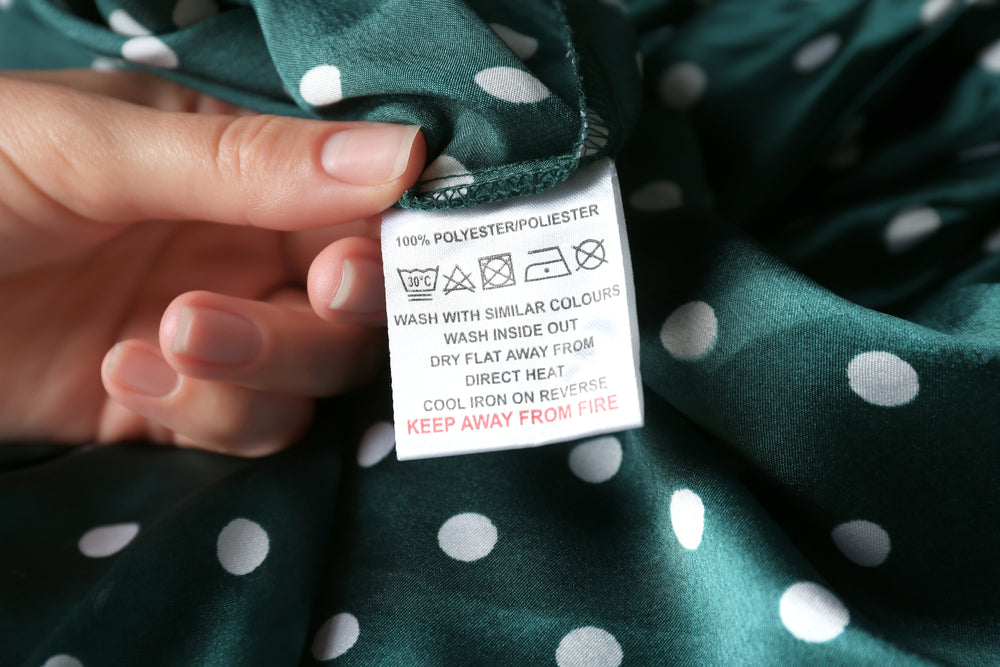Free U.S. Shipping On Orders Over $150

Polyester and Nylon: Pros and Cons of Wearing Synthetic Clothes When Traveling
Posted on
Clothes made from natural fabrics like cotton and linen are almost always better for travel than those made from synthetic materials such as polyester and nylon. The key word here is almost. There are a few situations where synthetic clothing is the better choice when traveling.
In this post we look at the pros and cons of synthetic clothing for traveling, when to wear them and when to opt for natural fabrics instead.
What Are Synthetic Clothes?
Synthetic clothes are made with artificial fabrics, the most common ones being polyester and nylon. Others include elastane, acrylic and polypropylene.
Most synthetics are derived from petroleum. They are essentially types of plastics that are spurn into fibers. But some manufacturers are now creating synthetic fabrics from more eco-friendly and renewable sources like corn, sugarcane and wheat. They are called biosynthetics.
Synthetic vs. Natural Fabrics
On the other side are natural fabrics. The most common one is cotton. Others include wool, linen, hemp and silk. While natural fabrics are typically more eco-friendly, there are differences on how green they are.
For instance, some types of cotton can be bad for the environment since they need lots of fertilizers and pesticides. How a fabric is processed (does it need a lot of chemicals?) also determines its eco-friendliness.
And with synthetic clothes increasingly being made from renewable sources and recycled plastics, it’s no longer a given that all natural fabrics are better for the environment. You still need to do your research to make sure that what you are buying is environmentally friendly.
In terms of comfort, natural fabrics are generally better. They are more breathable, softer on the skin, wick sweat better and they smell less when you are sweaty. But, as we’ll discuss next, sometimes synthetic clothes are the more comfortable choice.
When to Wear Synthetic
During Exercise and Sports
There’s a reason you’ll rarely find gym or running wear made from cotton. Clothes for intense physical activities are almost always made from synthetic fibers.
That’s because synthetic clothes dry super fast. When you sweat, they don't stay damp for long unlike cotton. Synthetic clothes are also lightweight and can easily be made stretchy, which is handy for exercise and sports.
When Traveling Outdoors
The quick-drying nature of synthetic clothes also make them a good choice for outdoor activities like hiking and trekking. They dry quickly if you sweat or get rained on. That’s the main reason why polyester clothing is safer than cotton when outdoors. Because it doesn't hold onto moisture, there is less risk of hypothermia.
Polyester and other synthetics like nylon make for excellent base and mid layers when outdoors.
If You Are on a Budget
Because manmade fabrics are relatively easy to source and manufacturer, synthetic clothes are usually a lot cheaper than natural ones.
If you are looking for affordable travel wear that will last a long time, synthetic clothes are a good choice.
When to Go Natural
Synthetic clothes also come with many downsides. Here’s when you should opt for natural fabrics over synthetic ones.
- If you need to stay cool and sweat-free. Wool, cotton, linen, bamboo and other natural fabrics have better breathability and moisture-wicking capability.
- If you have sensitive skin. Some synthetic fabrics can feel scratchy and cause a lot of friction on your skin. They also trap sweat and heat, which can cause skin issues like acne and eczema.
- If you want to stay warm without overheating. Polyester and other synthetic fabrics do a good job keeping you warm when it is chilly. But they can easily make you overheat and sweaty, especially when you are active (e.g. during a hike). If you want to stay warm without overheating, wool is your best choice. It insulates you, without trapping too much heat.
- You prefer eco-friendly clothing. While natural fabrics are not always green, many of them are more eco-friendly than synthetics. Alternatively, avoid synthetic clothing made from petrochemicals and look for those made with renewable materials like wheat and corn, or those made from recycled plastics.
- If you want to smell fresh. Synthetic clothes tend to smell sweatier and hold onto these smells for longer. In contrast, natural fabrics and especially wool are naturally resistant to odors. If you want a guaranteed way to stay fresh no matter how sweaty you get, get one of Hercleon’s odor-fighting clothes. They are great for outdoors and traveling.
Quick links
Contact
6063 Hudson Road #160
Woodbury, MN 55125
Yo@hercLeon.com
Leave a comment: